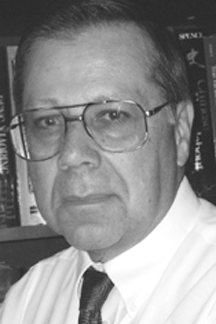GUEST COLUMN, John Richard Schrock, Education Frontlines
There is a long history of courts upholding the decisions of professional teachers and librarians.
In 1886 Indiana, Andrew v. Webber upheld the requirement for students to attend music classes despite parental objections. In 1923 in Meyer v. Nebraska, the U.S. Supreme Court ruled that a state law prohibiting foreign language courses was unconstitutional. During the AIDS education era in 1995, the First Circuit Court upheld a requirement that students must attend an AIDS education presentation.
In 1968, Epperson v. Arkansas found the Arkansas statute making teaching of evolution illegal violated the Establishment Clause of the First Amendment. In Edwards v. Aguillard in 1987, the U.S. Supreme Court found the Louisiana statute requiring the “equal treatment” of evolution and creation “science” to be unconstitutional. In the 2005 Dover, Pennsylvania case, Judge John E. Jones III ruled in favor of science, writing that intelligent design “cannot uncouple itself from its creationist, and thus religious, antecedents.”
In 1983, a Tennessee school board adopted a reading series including stories on evolution, magic, feminism and telepathy. Some parents asked to remove their students from the class, considering the books godless and sinful. The appellate court ruled that the school could require the books to be read. Chief Judge Pierce Lively wrote: “There was no proof that any plaintiff student was ever called upon to say or do anything that required the student to affirm or deny a religious belief or to engage or refrain from engaging in any act either required or forbidden by the students' religious convictions.”
In 1987 the 6th Circuit Court in Mozert v. Hawkins Board of Education upheld use of a required textbook over the complaint that it contained objectionable material. Earlier in 1982, the U.S. Supreme Court in Board of Island Trees v. Pico, ruled that a school district could not remove school library books without a legitimate educational reason. And in 2008, the First Circuit Court in Parker v. Hurley upheld use of a primary book discussing diverse families and a gay marriage, and denying parental opt out.
And last month, the 4th Circuit Court of Appeals ruled against a Maryland parents’ lawsuit over the Montgomery County Board of Education action denying parental opt-out of elementary school LGBTQ+ lessons. Chief Judge Agee wrote: “As an initial matter, there’s no evidence at present that the Board’s decision not to permit opt-outs compels the Parents or their children to change their religious beliefs or conduct, either at school or elsewhere.”
Despite these many modern cases supporting professional decision-making, across the U.S. we are witnessing a record number of proposed state laws that dictate to professionals the books, practices or curricula they can and cannot use. Teachers in some states must now police their classwork for any materials potentially objectionable to parents or that would make their students “uncomfortable.”
Board of education election debates reveal a lot of misunderstanding concerning the academic freedom of K–12 teachers. Academic freedom is constrained by the body of knowledge of the profession. But once definitive research produces clear results that are replicable, it becomes an added part of professional knowledge—a paradigm—and the substance of textbooks and professional training.
A teacher is “in loco parentis” (“in the place of the parent”) while a student is at school. This refers to our parent-like responsibility for the safety of our students. It does not mean that we teach the varied views of parents that deviate from the body of professional knowledge. When I began teaching science in Kentucky in 1969, there was a community further south where folks believed the earth was flat. Such beliefs persist today, and transferring curricular decisions to that community would result in teaching flat-earth “science.” At a national level, such a society could never successfully launch spacecraft.
But a teacher is also “in loco civitatus” or teaching with responsibility to the society. When professional teachers are gagged, a society’s future is bleak. School boards likewise have a responsibility, a “compelling state interest,” to allow teachers to maintain curricula aligned with their profession, and not provide a “pick-and-choose” curricula to fit a disparate parent community.
Medical professionals, not patients, should determine surgical practices in hospitals. Professional librarians oversee library collections. And well-educated teaching professionals, not parents, should determine public school curricula according to the current knowledge of their content field.















